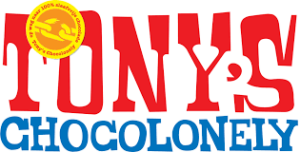Tony’s Chocolonely
Choc-tastic purpose and profit
Tony’s Chocolonely wants to make all chocolate 100% slave free. Not just our chocolate, but all chocolate worldwide. Not exactly the average company, right? Instead a chocolate company whose primary goal is to resolve a social issue in the world.
Tony’s Chocolonely is a Dutch chocolate company that has gained international recognition for its commitment to producing slave-free and fair trade chocolate.
The company was founded in 2005 by Teun van de Keuken, a Dutch journalist from the Dutch TV-program “Food Unwrapped” when he discovered that the large chocolate manufacturers used cocoa from farms with children slaves at work.
De Keuken’s journey began when he discovered that many chocolate companies were not taking sufficient measures to ensure that their cocoa supply chains were free from exploitation and child labor. Feeling a moral obligation to address this issue, he decided to create a chocolate brand that would be fully committed to fair trade and slave-free practices.
Tony’s Chocolonely introduced its first chocolate bar later in 2005, which was initially a limited edition. The company’s mission was to set an example for the chocolate industry and inspire change.
The brand gained popularity in the Netherlands and began to expand its product line. The company emphasized the importance of transparency in its supply chain and published annual reports detailing its efforts to combat child labor and slavery.
It became the first chocolate brand in the world to achieve 100% traceability for its cocoa beans. It also advocated for industry-wide changes and collaborated with other stakeholders to address systemic issues within the cocoa supply chain.
Tony’s Chocolonely’s unique approach and commitment to ethical practices gained international attention. The company continued to grow, expanding its market presence beyond the Netherlands and becoming a symbol for the fair trade movement.
Key components of the strategy are:
- 100% Slave-Free: Tony’s Chocolonely is committed to producing chocolate that is 100% slave-free. The company actively works to eliminate child labor and modern slavery from its supply chain and promotes transparency in the cocoa industry.
- Traceability: One of the key elements of Tony’s strategy is achieving full traceability of its cocoa beans. The company traces its supply chain from the farmers to the consumers, ensuring that every step is accountable and transparent.
- Fair Trade Practices: Tony’s Chocolonely ensures that the cocoa farmers receive fair compensation for their work. By adhering to fair trade practices, the company aims to address the economic inequalities in the cocoa industry.
- Advocacy and Collaboration: The company actively engages in advocacy efforts to promote systemic changes in the chocolate industry. Tony’s collaborates with other companies, NGOs, and governmental bodies to address the root causes of exploitation in the cocoa supply chain.
- Consumer Education: Tony’s Chocolonely recognizes the importance of consumer awareness. The company educates consumers about the issues in the chocolate industry and encourages them to make informed choices to support ethical and sustainable practices.
Tony’s Chocolonely has grown to be the number 1 chocolate brand in the Netherlands. It wants to make people aware of the inequality in the chocolate industry, set the example that chocolate can be made differently and inspire the chocolate industry to make 100% slave free cocoa the norm in chocolate.
The company’s financial performance has been impressive. Ten years ago, the company had a turnover of less than €1 million. Today, they turnover over €100m with a growth rate of 24% and a healthy and growing gross margin of 46%. In the Netherlands, for instance, they occupy over an 8% market share of the chocolate industry, providing ammunition that ‘purpose’ and ‘profit’ can go hand in hand.
The brand has evolved from a small initiative to a globally recognised brand with a mission to create a 100% slave-free chocolate industry. Through its commitment to transparency, fair trade, and advocacy, the company has played a significant role in raising awareness about the challenges in the cocoa supply chain and inspiring positive change in the industry.
